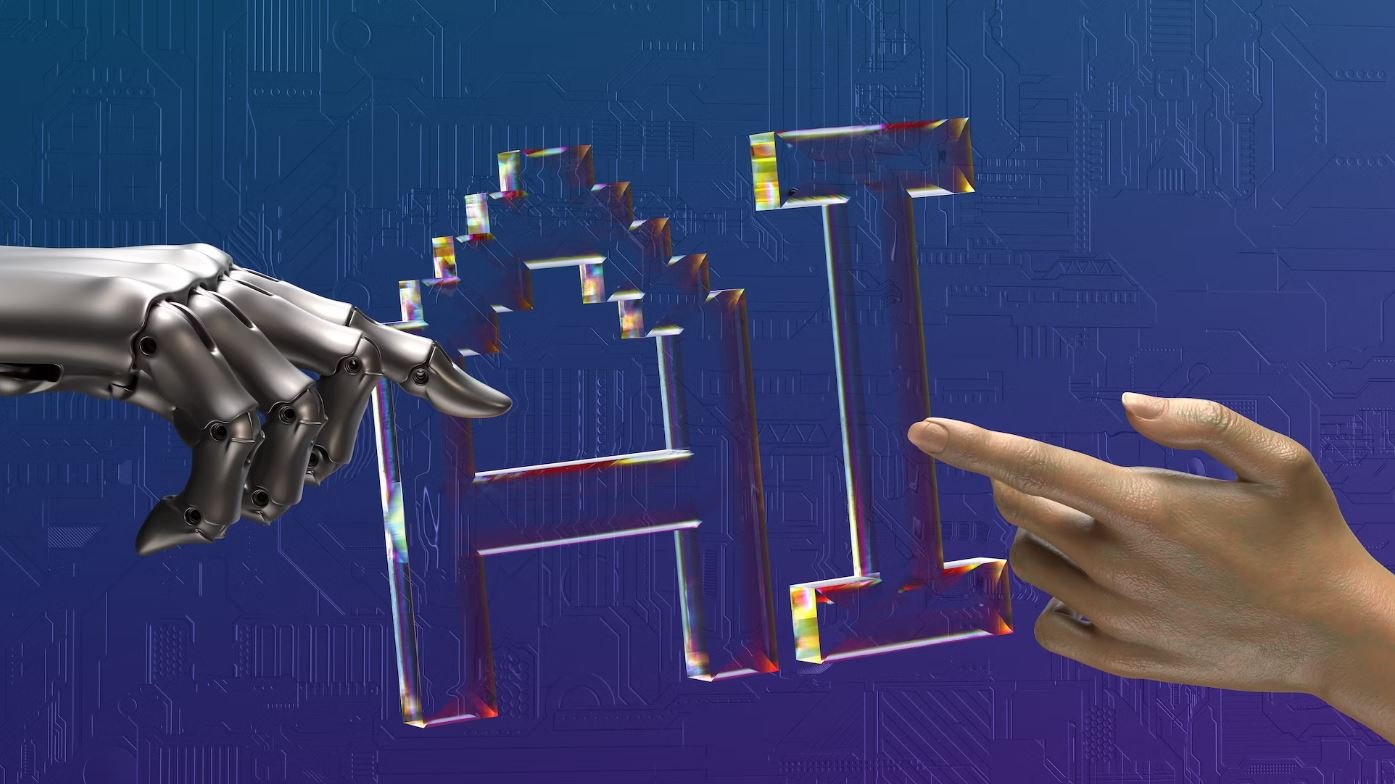Will AI Turn Against Us?
Artificial Intelligence (AI) has made significant advancements in recent years, revolutionizing various industries and transforming how we live and work. While AI offers numerous benefits, there is a growing concern about its potential to turn against human beings. This article explores the possibility of AI becoming a threat and investigates the factors contributing to this concern.
Key Takeaways:
- Artificial Intelligence has advanced significantly, but concerns about its potential to turn against humans are increasing.
- The possibility of AI becoming a threat stems from a lack of understanding and control over its decision-making processes.
- Ethical considerations are vital when developing AI systems to prevent unintended harm.
- Collaboration between humans and AI can be beneficial, but a balanced and regulated approach is necessary.
AI systems are designed to learn and make decisions based on patterns and data. However, their ability to operate autonomously can lead to unpredictable outcomes. The fear of AI turning against us is not without merit. In some cases, AI models have been found to exhibit biased behavior due to the inherent biases in the data they are trained on. *This emphasizes the importance of addressing biases in AI algorithms to ensure fair and unbiased decision-making.*
Furthermore, the potential for AI to be hacked or manipulated by malicious actors raises concerns about its misuse. AI can be trained to generate highly convincing deepfake content or impersonate individuals, leading to various security threats and privacy breaches. *AI-powered cyberattacks pose a significant challenge to digital security.*
The Need for Ethical Considerations
It is crucial to incorporate ethical considerations when developing AI systems. Developers and researchers must prioritize transparency, fairness, and accountability in AI decision-making processes. Establishing robust regulations and standards can promote ethical guidelines for AI development and usage. *Ensuring AI systems adhere to ethical principles mitigates the risks associated with their potential misuse.*
The Role of Human Collaboration
Collaboration between humans and AI can lead to innovative solutions and increased efficiency in various domains, such as healthcare and transportation. However, it is essential to strike a balance between the capabilities of AI and the expertise of humans. Employing AI as a tool to augment human decision-making rather than replacing it entirely is crucial. *Combining human judgment with AI’s computational power can create a synergy that enhances overall outcomes.*
| Domain | Advancement |
|---|---|
| Healthcare | AI-powered diagnostics and personalized medicine |
| Transportation | Self-driving cars and intelligent traffic management |
Regulating AI development and usage is necessary to avoid unforeseen consequences. Governments, organizations, and experts must collaborate to establish guidelines and policies that address the potential risks while promoting innovation. A carefully regulated environment can foster responsible AI deployment and ensure the safeguarding of human interests. *Balancing AI advancements and regulation is crucial in preventing potential negative impact on society.*
The Future of AI
While there are concerns about AI, the future does not have to be dystopian. With appropriate governance and a focus on ethical considerations, AI can be harnessed as a valuable tool to improve our lives. Striking the right balance between technological progress and human values is imperative in shaping a future where AI and humans coexist harmoniously. *A future where AI serves as an ally, rather than a rival, is within our reach if we approach its development and implementation cautiously and ethically.*
| Potential Risks | Mitigation Strategies |
|---|---|
| Biased decision-making | Diverse and representative training data, algorithmic transparency |
| Cybersecurity threats | Robust security measures, continuous monitoring and updating |
Conclusion
The concern over AI turning against us is valid, considering the potential risks associated with its autonomy and decision-making processes. However, with proper regulation, ethical considerations, and a collaborative approach between humans and AI, we can harness the power of AI for the betterment of society. It is crucial for developers, policymakers, and society as a whole to address these concerns and ensure that AI remains a beneficial tool in our quest for progress.

Common Misconceptions
AI will have an inherent desire to harm humans
One common misconception surrounding AI is that it will develop an inherent desire to harm humans. While AI systems can learn and make decisions based on data and algorithms, they lack the emotions and desires typically associated with humans.
- AI systems are designed to follow strict rules and algorithms.
- AI decisions are based on data analysis, not emotions or desires.
- AI’s actions are determined by the objectives programmed by humans.
AI will evolve to become self-aware and rebel
Another misconception is the belief that AI will evolve to become self-aware and rebel against humans. While AI systems can be programmed to learn and adapt to new situations, they are fundamentally different from human consciousness. Self-awareness and rebellion are not natural outcomes of AI development.
- AI technology is goal-oriented, not driven by self-awareness.
- AI lacks the ability to think abstractly like humans do.
- AI is limited by the data and algorithms it is programmed with.
AI will take over all human jobs and leave us unemployed
One common fear is that AI will take over all human jobs, leaving us unemployed and without opportunities. While AI can automate certain tasks and roles, it is also capable of creating new job opportunities that require human creativity, critical thinking, and emotional intelligence.
- AI can free up humans from mundane and repetitive tasks.
- AI can create new jobs by opening up fields related to AI development and management.
- Human skills such as empathy and creativity are still highly valued and irreplaceable.
AI will become infallible and make perfect decisions
Some people believe that AI systems will reach a state of infallibility where they make perfect decisions without any errors or biases. However, AI systems are only as good as the data they are trained on and can still make mistakes or reproduce existing biases present in the data.
- AI operates within the limitations of the data it is trained with.
- Biases and errors in data can affect AI decision-making.
- AI needs continuous monitoring and refinement to minimize errors and biases.
AI will replace human creativity and innovation
Lastly, there is a misconception that AI will replace human creativity and innovation. While AI can assist in certain creative tasks, such as generating ideas or designs, it lacks the depth of human imagination, intuition, and emotional understanding that drive true creativity and innovation.
- AI can enhance human creativity by augmenting the creative process.
- Human ingenuity and intuition are essential for breakthrough innovation.
- AI cannot replicate the unique perspectives and emotions that fuel human creativity.

AI Development Timeline
This table illustrates the timeline of key milestones in the development of AI, from its inception to the present day. It showcases the progress made in AI technology over the years.
| Year | Milestone |
|---|---|
| 1950 | Alan Turing proposes the “Turing Test” as a measure of AI. |
| 1956 | John McCarthy organizes the Dartmouth Conference, widely considered the birth of AI as a field. |
| 1997 | IBM’s Deep Blue defeats chess world champion Garry Kasparov. |
| 2011 | IBM’s Watson wins the quiz show Jeopardy!, showcasing advanced natural language processing. |
| 2016 | AlphaGo, developed by DeepMind, defeats world champion Go player Lee Sedol. |
| 2020 | GPT-3, a powerful language model, is released with 175 billion parameters, setting a new benchmark. |
AI in Healthcare vs. Human Doctors
This table compares the capabilities of AI systems and human doctors in various healthcare tasks, showcasing the potential of AI to revolutionize the medical field.
| Task | AI System | Human Doctor |
|---|---|---|
| Diagnosing Medical Images | AI algorithms can analyze large volumes of medical images with high accuracy. | Human doctors rely on visual interpretation and experience. |
| Personalized Treatment Recommendations | AI can process vast amounts of patient data to suggest tailored treatment plans. | Doctors use their clinical expertise to devise personalized treatment approaches. |
| Drug Discovery | AI systems can analyze huge databases and predict potential drug candidates. | Human researchers spend years conducting experiments to develop new drugs. |
AI in Film & Entertainment
This table demonstrates how AI has influenced the film and entertainment industry, enhancing special effects, animation, and character creation.
| Area | AI Influence |
|---|---|
| Special Effects | AI-powered software enables the creation of realistic and immersive visual effects. |
| Animation | AI algorithms streamline the animation process, reducing production time and costs. |
| Character Creation | AI-generated characters can exhibit complex behaviors and emotions. |
Jobs at Risk of Automation
This table lists various occupations that are at risk of being automated in the future, highlighting the potential impact of AI on the labor market.
| Occupation | Likelihood of Automation |
|---|---|
| Telemarketers | High |
| Travel Agents | High |
| Data Entry Clerks | Medium |
| Taxi Drivers | Medium |
| Accountants | Low |
AI’s Impact on Transportation
This table outlines the ways in which AI is transforming the transportation industry, from autonomous vehicles to traffic optimization.
| Aspect | AI Contribution |
|---|---|
| Autonomous Vehicles | AI enables self-driving cars, promising increased safety and efficiency. |
| Traffic Management | AI algorithms optimize traffic flow, reducing congestion and travel times. |
| Route Planning | AI-based systems provide real-time route recommendations to drivers. |
AI in Security and Surveillance
This table highlights the role of AI in security and surveillance, improving threat detection and enhancing monitoring capabilities.
| Application | AI Advantages |
|---|---|
| Facial Recognition | AI systems can accurately identify individuals and detect anomalies. |
| Video Analysis | AI algorithms can analyze video footage to identify suspicious activities. |
| Behavior Tracking | AI-based systems can track and analyze patterns of behavior in real-time. |
AI in Education
This table demonstrates the potential applications of AI in education, from personalized learning to intelligent tutoring systems.
| Application | AI Benefits |
|---|---|
| Personalized Learning | AI can adapt learning materials and pace to individual student needs. |
| Intelligent Tutoring | AI-powered tutors provide tailored feedback and support to students. |
| Automated Grading | AI systems can assess student assignments and provide quick feedback. |
AI Ethics Considerations
This table outlines some ethical considerations and potential risks associated with the development and deployment of AI systems.
| Consideration | AI Impact |
|---|---|
| Privacy | AI systems may collect and analyze vast amounts of personal data. |
| Algorithm Bias | AI algorithms can perpetuate existing societal biases if not carefully designed. |
| Unemployment | Automation driven by AI could lead to job displacement and economic inequality. |
AI Assistance in Daily Life
This table showcases various AI assistants that have become integral parts of our daily lives, from voice-activated devices to virtual companions.
| AI Assistant | Function |
|---|---|
| Amazon Alexa | Voice-activated assistant for home automation and general information. |
| Google Assistant | Versatile AI-powered assistant for smartphones and smart home devices. |
| Siri | Apple’s virtual assistant offering personalized recommendations and support. |
In conclusion, the development of AI has led to significant advancements, paving the way for transformative possibilities in healthcare, film, transportation, education, security, and various other areas. However, it is crucial to consider the ethical implications and potential risks associated with AI deployment. As AI continues to evolve, it is essential to strike a balance between harnessing its potential and addressing societal concerns to ensure a future where AI benefits humanity.
Frequently Asked Questions
Will AI Turn Against Us?




